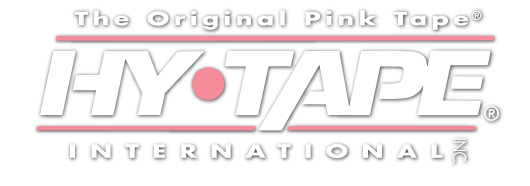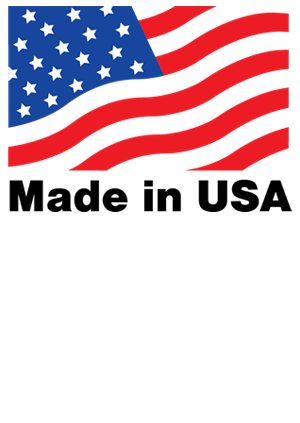
Surgery to remove a thyroid tumor can be a life-saving surgery. Unfortunately, the thyroid gland is in the front of the neck, so the incision that a surgeon makes to remove the thyroid gland can leave a noticeable and sometimes unsightly scar. Fortunately, there are steps you can take—starting the day of thyroid surgery—to minimize the appearance of thyroid surgery scars.
Caring for your scar immediately after thyroid surgery
When you awake after thyroid surgery, your main responsibility is to stay comfortable and keep the head of your bed raised. Small strips of tape (Steri-strips) will cover your surgical incision. However, you will not be able to see them because gauze and medical tape will cover the entire area. Your surgical site may or may not have a small drainage tube coming from it. Your nurses will be responsible for your incision prior to your discharge, but you can do your part by keeping your head in a neutral position (looking straight in front of you, not up or down) as much as possible. This will help you keep from putting extra tension on the incision, and will help minimize pain.
Caring for your scar the first day after thyroid surgery
While some thyroid surgeries are done on an outpatient basis (no overnight stay), most patients will spend the night in the hospital. You will be responsible for caring for your surgical wound once you are discharged. In most cases, you will be able to shower as soon as you get home, so it is important to properly care for your bandages and incision. When you do shower (no bathing), try to keep your neck as dry as possible, and make sure to carefully dab (not rub) the towel on the area to dry it afterwards.
For extra protection, many people find it helpful to cover the wound with a piece of sterile gauze and Hy-Tape while showering. Hy-Tape is waterproof and it removes easily and cleanly, so it is ideal for this purpose. Various sizes of gauze sponges/bandages are sold in precut squares. Choose a size that completely covers the wound. Likewise, Hy-Tape comes in convenient, precut strips.
Caring for your scar the first week after thyroid surgery
You will likely be told to return to your surgeon’s office one week after surgery. At this appointment, you will have a postsurgical evaluation and the doctor will remove any Steri-Strips and stitches that remain. You can continue to shower during this week, but do not take a bath, use a hot tub, or fully submerge your neck in water. You may keep using the same showering method described above. Over time, your Steri-Strips will start to fall off as the glue weakens. This is nothing to worry about, but do not disturb the Steri-Strips that remain (i.e., let them fall off on their own).
It is very important, especially during the first week after surgery, to keep your thyroid surgical scar protected from the sun. The new skin that is forming is delicate and extremely sensitive to UV radiation. Keep the amount of light your scar gets to a minimum, because this will influence the final appearance of your thyroid scar. Simply put, the less sunlight that strikes your incision, the better your thyroid surgery scar will look over time. A great way to do this is to use a piece of gauze and frame it with Hy-Tape. Make sure you use enough gauze to block out all UV radiation. One to two squares are usually enough. If you cannot see the skin through the gauze, you are using the right amount.
While it is uncommon, every surgery comes with a risk of infection. Unfortunately, a wound infection can interfere with the skin’s ability to heal, and may make the final scar to look worse. As such, make sure to examine your surgical wound for signs of infection each day of the first week after thyroid surgery. If the skin around the wound is red, warm, and or swollen, this could mean you have an infection (though a little bit of swelling and pinkness is normal). If you see pus or fluid leaking from the wound, call your surgeon’s office. Also, call your doctor if you run a temperature of 100.5 degrees Fahrenheit or higher at any point during the first week after thyroid surgery.
Caring for your scar the first year after thyroid surgery
After the surgeon removes your stitches and the skin has closed, the best way to care for your thyroid surgery scar is to protect it from UV radiation. Experts at Johns Hopkins recommend covering the scar with a sunscreen of at least SPF 30 for an entire year after your procedure. This will help improve the long-term appearance of your thyroid surgery scar. If you know that you will be spending a substantial amount of time outdoors in direct sunlight (more than one hour), you can give your surgical scar some added protection by using a single strip of Hy-Tape to cover the incision mark. While it is relatively thin and moldable, Hy-Tape blocks UV radiation as well as or better than clothing does. So if you are going to spend the day at the beach within the first year after thyroid surgery, consider using a single strip of Hy-Tape for added UV protection.
What do I do if I still have a scar?
Surgical scar healing is a process, and thyroid surgery scar healing is no different. Your incision may be firm and red for many months after the procedure. The scar may have raised borders, too. Patients usually hate the look of raised borders around a scar, but early on in the process, this actually helps the skin to heal. Raised thyroid scars usually flatten over time.
If you are unhappy with the look of your thyroid surgery scar several weeks after the procedure, you may consider using silicone sheets or gels to cover the scar. On the other hand, avoid using steroid creams because these can interfere with skin healing and actually make the scar look worse.
If these things fail and you are still unhappy with the look of your thyroid surgery scar, you can speak with a plastic surgeon or dermatologist for specialized support. Hypertrophic and keloids scars can be treated with steroid injections, while atrophic scars (depressed scars) can be injected with dermal fillers (e.g. collagen). Lastly, dark flat scars can be treated with chemical peels, medical lasers, or scar revision surgery.
We would like you to try Hy-Tape if you feel a gentle, conforming, SPF50+ tape can help. Click here to try a sample. Please let us know where your scar is and how large it is so we can send the correct tape sample.
Our Three Packs of tape may also be a great solution.

